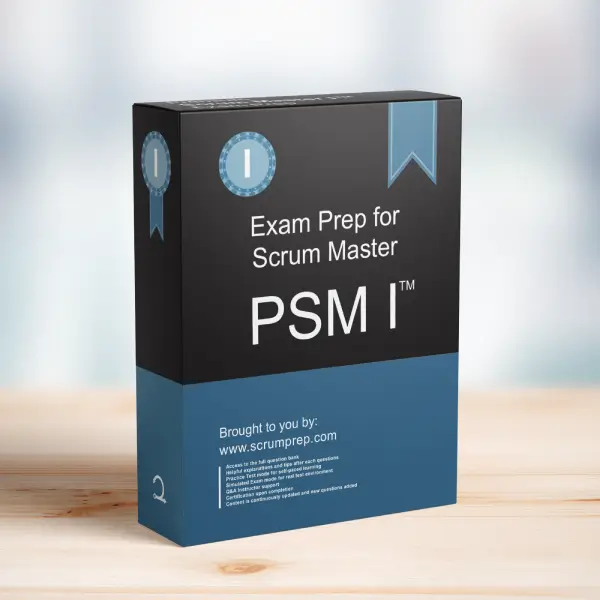Understanding the Product Backlog in Scrum
The Product Backlog is a central component of Scrum, representing the work needed to improve a product. This article explores a specific exam question about the characteristics of the Product Backlog, providing detailed explanations and insights relevant to the PSM I exam.
Exam Question
A Product Backlog is: (choose the best three answers)
- A. An inventory of things to be done for the Product.
- B. Ordered based on priority, value, dependencies, and risk.
- C. An exhaustive list of upfront approved requirements to be implemented.
- D. Managed by the Product Owner.
- E. Only visible to the Product Owner and stakeholders.
Correct Answers
A. An inventory of things to be done for the Product.
B. Ordered based on priority, value, dependencies, and risk.
D. Managed by the Product Owner.
Explanation
Correct Answers
A. An inventory of things to be done for the Product: The Product Backlog is essentially a list of all the work items, or things to be done, to improve or build the product. It includes features, bug fixes, technical work, and knowledge acquisition.
B. Ordered based on priority, value, dependencies, and risk: The Product Backlog is not just a random list of tasks; it is ordered to ensure that the most valuable, highest-priority items are worked on first. The order takes into account various factors like priority, value to the business, dependencies, and risk.
D. Managed by the Product Owner: The Product Owner is responsible for the Product Backlog, including its content, availability, and ordering. They ensure that the backlog is up-to-date and reflects the current priorities and needs of the stakeholders and the team.
Incorrect Answers
C. An exhaustive list of upfront approved requirements to be implemented: This statement is incorrect because the Product Backlog is not a fixed list of requirements that are decided upfront. It is a living document that evolves as more is learned about the product and its users. New items are added, and existing items are refined and reprioritized continuously.
E. Only visible to the Product Owner and stakeholders: Transparency is a key principle in Scrum. The Product Backlog should be visible to the entire Scrum Team, including the Developers, to ensure everyone has a clear understanding of the work to be done and the priorities.
Responsibilities in Scrum
- Product Owner: The Product Owner manages the Product Backlog, ensuring it is ordered, transparent, and up-to-date. They collaborate with stakeholders and the Scrum Team to refine and prioritize the backlog items.
- Scrum Master: The Scrum Master supports the Product Owner in maintaining the Product Backlog and ensures that Scrum practices are followed. They facilitate the process and help remove any impediments.
- Developers: Developers work with the Product Owner to refine the Product Backlog items. They provide insights into the technical aspects and help estimate the effort required for each item.
Relevance to the PSM I Exam
Understanding the nature of the Product Backlog is crucial for the PSM I exam. It demonstrates knowledge of Scrum principles and the importance of maintaining a dynamic and transparent backlog. Mastering this concept ensures that Scrum Teams can effectively manage and prioritize their work.
Key Takeaways
- The Product Backlog is an inventory of all work items for the product, managed by the Product Owner.
- It is ordered based on factors like priority, value, dependencies, and risk to ensure the most valuable items are addressed first.
- The Product Backlog is a living document that evolves with the product and should be visible to the entire Scrum Team.
Conclusion
The Product Backlog in Scrum is a dynamic, prioritized list of all work needed to improve a product. It is managed by the Product Owner and should be visible to the entire Scrum Team to ensure transparency and effective collaboration. Understanding this concept is essential for effective Scrum implementation and success in the PSM I exam. For comprehensive preparation and practice exams, check out PSM I Exam Prep to enhance your understanding and application of Scrum principles.




